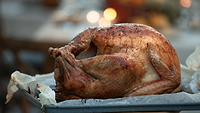Campylobacter Causes Most UK Foodborne Illnesses, but Outbreak Detection is Lacking

Image credit: Freepik
The latest UK Food Security Report (UKFSR) has been published by the UK Government, covering 2023–2024 and comparing trends with the previous five years. The report covers food safety incidents, foodborne illness outbreaks and disease surveillance, food hygiene, food crime, and other components of national food safety and security.
Microbiological Contamination, Foodborne Illnesses, and Pathogen Surveillance
According to foodborne pathogen surveillance data published in the latest UKFSR, in the UK in 2023, there were 71,710 laboratory-confirmed cases of Campylobacter infection, 10,257 for non-typhoidal Salmonella, 762 for Shiga toxin-producing Escherichia coli (STEC) O157, and 203 for Listeria monocytogenes. Campylobacter had the highest reporting rate annually across all years between 2019 and 2023, with the highest rate recorded in 2023. Salmonella was the second most commonly reported pathogen annually in the 5-year period.
Salmonella caused the greatest number of foodborne illness outbreaks (50) from 2019–2023, followed by enteric viruses (44), STEC and other diarrhoeagenic E. coli (36), L. monocytogenes (26), Clostridium perfringens (26), Campylobacter (19), Shigella (5), and Cryptosporidium (2). Another 12 and two outbreaks were caused by unknown and other agents, respectively, for a total of 222 foodborne illness outbreaks across the 5-year period. There were 7,228 cases of foodborne illness associated with the 222 outbreaks during 2019–2023, of which 3,380 were salmonellosis cases and 1,846 were cases of infection by enteric viruses.
Despite Campylobacter being the most commonly reported pathogen in the UK based on laboratory confirmed case reports, the number of reported campylobacteriosis outbreaks investigated between 2019–2023 was less than half the number of Salmonella outbreaks. This may be due to the difficulty of detecting Campylobacter outbreaks, as there does not exist a routinely implemented national typing scheme in the UK for the pathogen, such as routine whole genome sequencing (WGS).
Of the total outbreaks investigated between 2019 and 2023, a food vehicle was successfully implicated in 147 outbreaks. Composite/mixed foods were responsible for the greatest number of outbreaks (25), followed by poultry meat/poultry meat products (22) and beef/beef products (19). Poultry/poultry meat outbreaks were mainly caused by Salmonella (45 percent) and Campylobacter (27 percent).
Other Food Safety Incidents
In England, Wales, and Northern Ireland, 1,837 food safety incidents were recorded in 2023–2024, lower than the 5-year average (2019–2024) of 2,133 incidents. In Scotland, 139 incidents were recorded in 2023–2024, slightly higher than the 5-year average (115). Approximately 26 percent of all incidents reported from 2021–2024 were attributed to microbiological contamination.
The UK Food Standards Agency (FSA)/Food Standards Scotland (FSS) issued 136 food alerts in 2023–2024, a decrease from the 154 alerts issued in 2022–2023. This decrease was mostly due to a fall in allergy alerts (66 in 2023–2024 versus 87 in 2022–2023). A total of 69 Product Recall Information Notices (PRINs) were published by FSA/FSS in 2023–2024, consistent with the 5-year period. Since 2019, only four Food Alerts for Action (FAFAs) have been issued, which are alerts issued when the distribution of product is unclear or when a food business is not taking steps to remove products from the market.
In 2023–2024, there was a 10 percent decrease in incident reporting across England, Wales, Scotland, and Northern Ireland compared to 2022–2023.
Compliance With Food Hygiene Regulations
In England, Wales, and Northern Ireland in 2023–2024, there has been a slight increase in the percentage of food businesses that achieved a rating of “3—Generally Satisfactory” or better under the Food Hygiene Rating Scheme (FHRS). This figure has remained stable at approximately 96.9 percent from the end of 2021 onwards. Analysis of the overall distribution of ratings indicates an upward trend in food business hygiene compliance in England, Wales, and Northern Ireland between April 2019 and March 2024.
Additionally, “5—Very Good” FHRS ratings rose from 70.8 percent in the beginning of 2019 to 76.3 percent at the end of 2024.
Food Crime
FSA’s National Food Crime Unit (NFCU) and the Scottish Food Crime and Incidents Unit (SFCIU) achieved 92 food crime disruptions in 2023–2024, a large proportion of which involved illegal activity in the meat sector and the sale of dangerous non-food represented as food. Activities in the “smokie” trade accounted for a significant number of meat disruptions. A smokie is a product that involves blow-torching sheep or goat carcasses with the skin left on, which is a practice that poses significant risk to public health.
In England, NFCU supported local authorities with a case that resulted in fines totaling £36,642 for three defendants operating an illegal smokie business. Additionally, four suspects also have been charged with conspiring with others to supply smokies, money laundering, and animal welfare offences, one of whom pleaded guilty and was sentenced in October 2024. The other three suspects await trial in 2026.
Looking for a reprint of this article?
From high-res PDFs to custom plaques, order your copy today!






